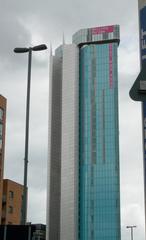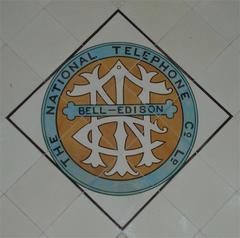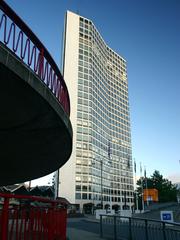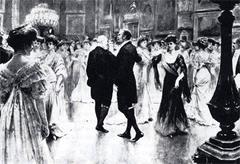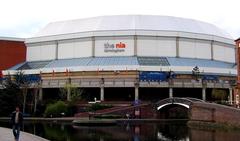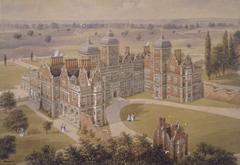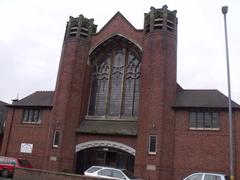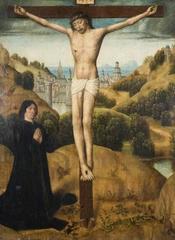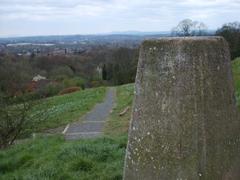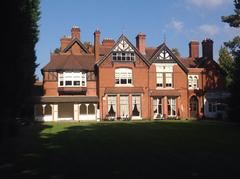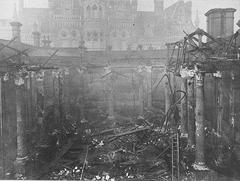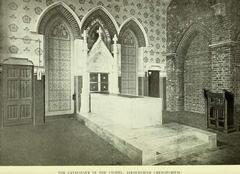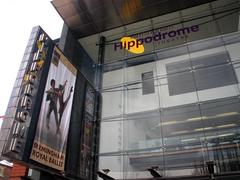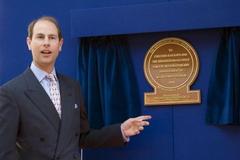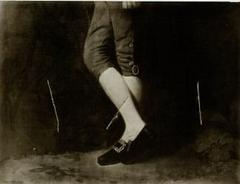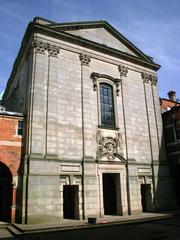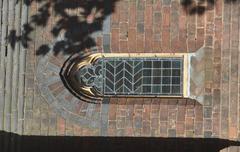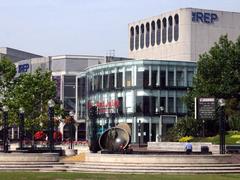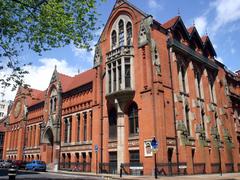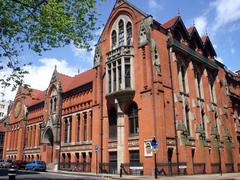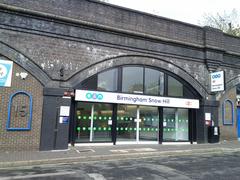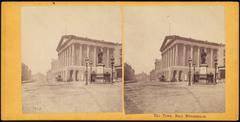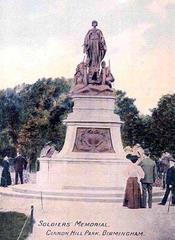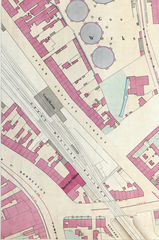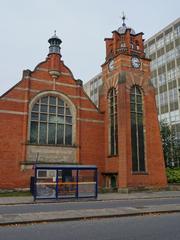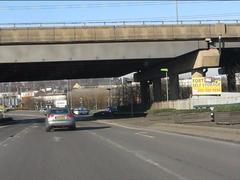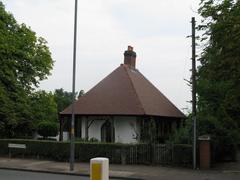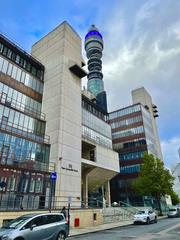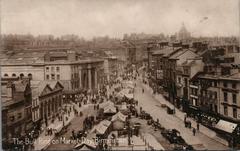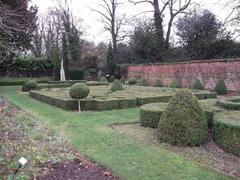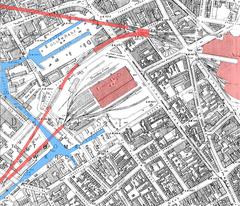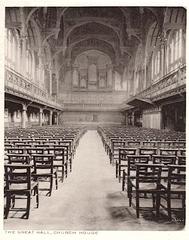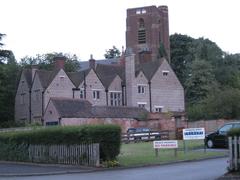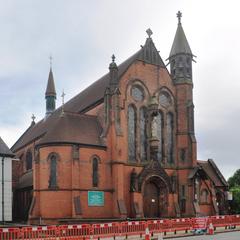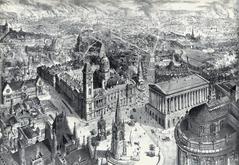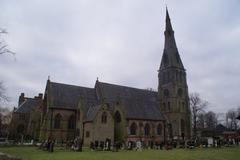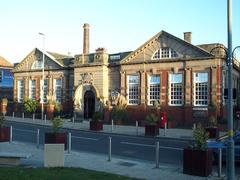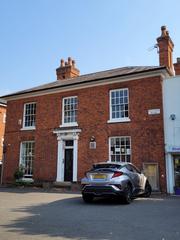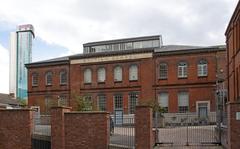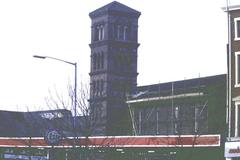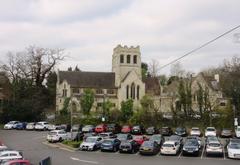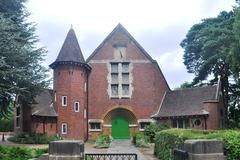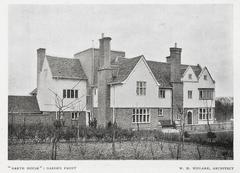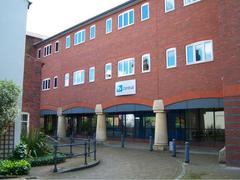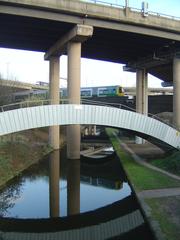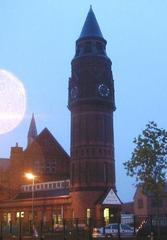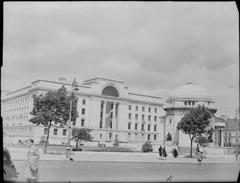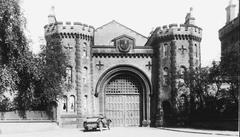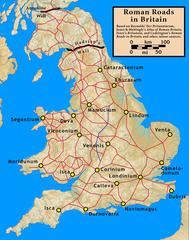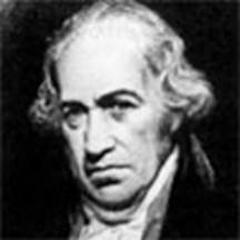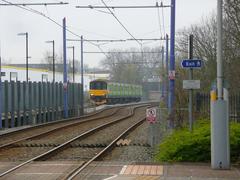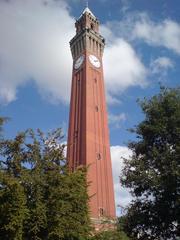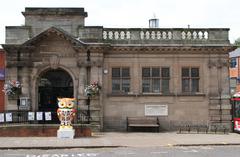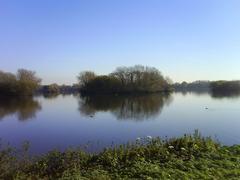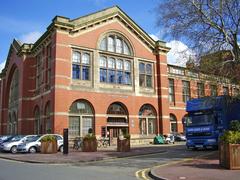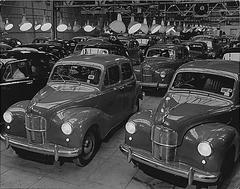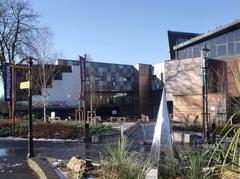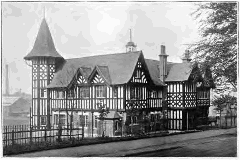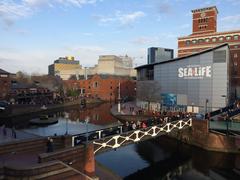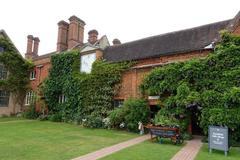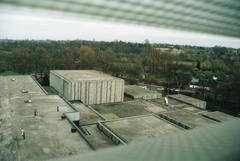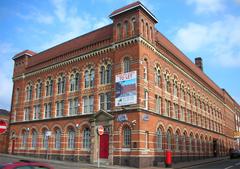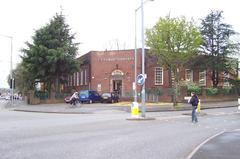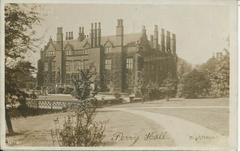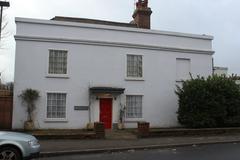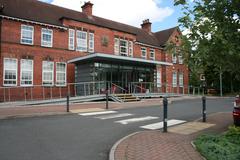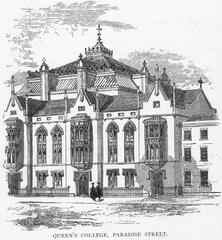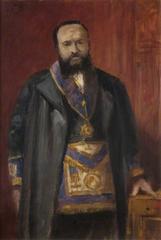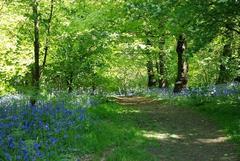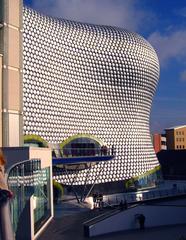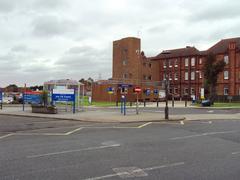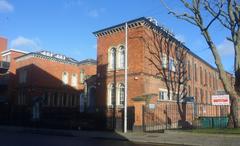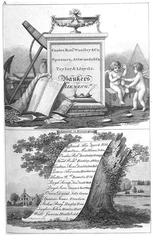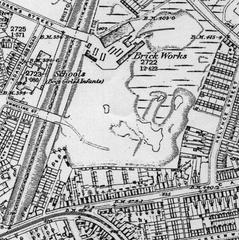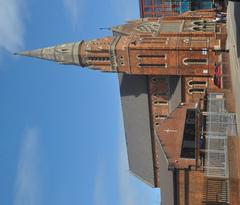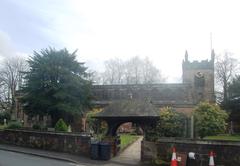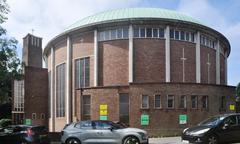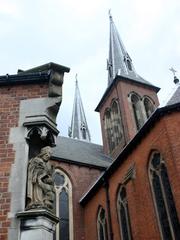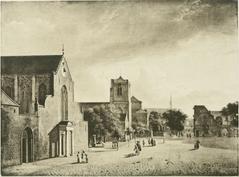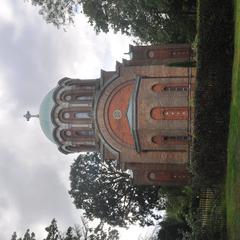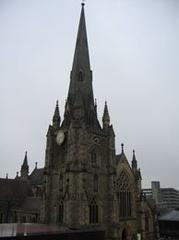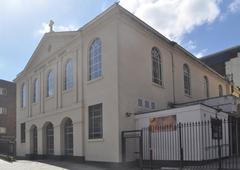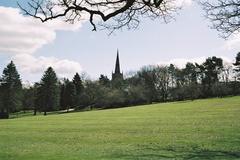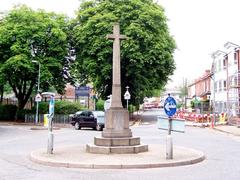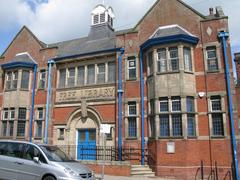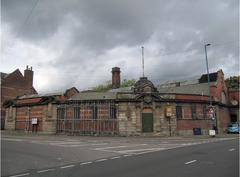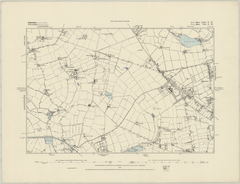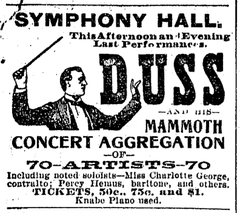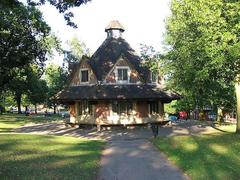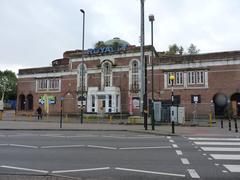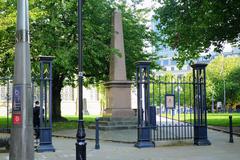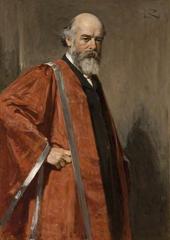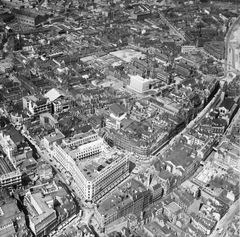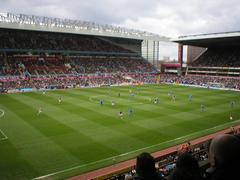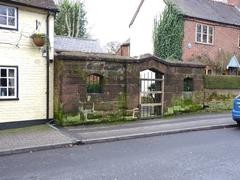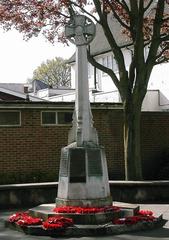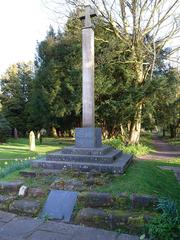
Friends Institute Buildings Birmingham: Visiting Hours, Tickets, and Historical Sites Guide
Date: 04/07/2025
Introduction: History and Significance
Located in the heart of Birmingham, United Kingdom, the Friends’ Institute Buildings are an enduring symbol of Victorian philanthropy, Quaker heritage, and the city’s evolving social fabric. Established in 1897 by the visionary Cadbury family—prominent Quaker industrialists and reformers—the Friends’ Institute was conceived as a community hub that embodied values of inclusivity, education, and social welfare (Kiddle). Designed by architect Ewan Harper, with potential input from his brother James Harper, the building is distinguished by its robust red brick and terracotta details, reflecting the Arts and Crafts movement that defined Birmingham’s late 19th-century architectural landscape (Architecture of Birmingham).
Beyond its architectural prominence, the Friends’ Institute has played a dynamic role in Birmingham’s cultural, educational, and sporting life. It hosted the city’s first international athletics match in 1900 and continues to serve the community today as a center for arts, wellness, and social activities—open and accessible to all (Business Live, Moseley Together). This guide provides comprehensive information for visitors, including hours, tickets, accessibility, historical context, and nearby attractions.
Table of Contents
- Introduction
- Origins and Founding Vision
- Architectural Features and Layout
- Social and Cultural Impact
- Visiting Hours, Tickets, and Accessibility
- Directions and Nearby Attractions
- Memorials and Community Memory
- Preservation and Heritage Status
- Contemporary Role and Community Services
- Notable Events and Legacy
- FAQs
- Plan Your Visit
- References and Further Reading
Origins and Founding Vision
Commissioned by the Cadbury family and completed in 1897, the Friends’ Institute Buildings were envisioned as a center for spiritual, educational, and social betterment. Richard Cadbury’s philanthropic leadership ensured the project reflected Quaker ideals—community, inclusivity, and service (Kiddle). Architect Ewan Harper, with possible support from James Harper, designed a multifunctional space for religious meetings, adult education, and social gatherings.
Architectural Features and Layout
The Friends’ Institute Buildings exemplify Birmingham’s Arts and Crafts movement, featuring red brick construction and decorative terracotta elements (Friends’ Institute buildings). The building’s layout includes:
- Grand central hallway
- Reading room and coffee room on the ground floor
- Lecture room above the main corridor
- Large rear hall with a 2,000-person capacity
- 37 original classrooms (many still intact)
- Basement gymnasium, historically home to the Dolobran Athletics Club
The design emphasizes both functionality and beauty, with much of its original plan and detail preserved over more than 120 years.
Social and Cultural Impact
From its inception, the Friends’ Institute was a vibrant hub for both Quaker meetings and the broader community, supporting educational, recreational, and social initiatives. Notably, the venue hosted the Quakers’ annual Yearly Meeting in 1908 and 1954 (Kiddle). Its main hall, equipped with an organ and ample space, facilitated worship, lectures, and public events.
The Institute’s basement gymnasium was the site of Birmingham’s first international athletics match in 1900, welcoming teams from England, Ireland, and Scotland—a milestone in the city’s sporting history (Business Live).
Visiting Hours, Tickets, and Accessibility
Opening Hours:
- Monday to Friday: 9:00 AM – 5:00 PM
- Saturday: 10:00 AM – 4:00 PM (may vary)
- Sunday: Closed
Note: Check the Moseley Together website or contact the site directly for special events and holiday hours.
Admission:
- General entry is free, supporting inclusive access to all visitors.
- Special events or workshops may require advance booking or a nominal fee.
Accessibility:
- Step-free entrances
- Accessible restrooms
- Assistance available on request
- Hearing loop systems in main assembly areas
Guided Tours:
- Available by appointment
- Focus on history, architecture, and Quaker heritage
- Donations welcome
Photography:
- Permitted for personal use; please be mindful of ongoing events and visitors’ privacy.
Directions and Nearby Attractions
Location: 220 Moseley Road, Highgate, Birmingham, B12 0DG
Getting There:
- By Bus: Several bus routes serve Moseley Road.
- By Train: Birmingham New Street Station is about 2 miles away.
- Parking: Limited on-site and street parking available; public transport is recommended.
Nearby Birmingham Historical Sites:
- Birmingham Museum and Art Gallery
- Jewellery Quarter
- Moseley Road Swimming Baths (Grade II*)
- Highgate Park and Moseley Village
For more, see Visit Birmingham.
Memorials and Community Memory
A memorial within the Friends’ Institute commemorates community members who served in wartime—an important reflection of both civic and Quaker values (Friends’ Institute buildings). This highlights the building’s role as a site of remembrance and community identity.
Preservation and Heritage Status
Awarded protected status in 2014, the Friends’ Institute Buildings are recognized as a Grade II* listed site, ensuring preservation of their architectural and historical integrity (Business Live). The building continues to serve contemporary needs while honoring its heritage.
Contemporary Role and Community Services
Today, the Friends’ Institute remains a thriving community hub. It houses the Birmingham Centre for Art Therapies (BCAT), and the Moseley Road Community Centre, offering:
- Art and music therapy programs (Moseley Together)
- Dance, movement, and mindfulness sessions
- Craft workshops and creative activities
- Volunteer opportunities and community support
- Space hire for events and meetings
During the COVID-19 pandemic, the Institute played a vital role in food distribution and mental health support, strengthening its legacy of community service.
Notable Events and Legacy
The Friends’ Institute’s history is marked by significant events such as national Quaker meetings and pioneering sports competitions. Its ongoing use for education, therapy, and cultural events underscores its lasting impact on Birmingham’s social and architectural landscape (Friends’ Institute buildings, Business Live).
Frequently Asked Questions (FAQ)
What are the visiting hours?
Monday to Friday, 9:00 AM – 5:00 PM. Check ahead for special events or variations.
Is there an entry fee?
No, general admission is free. Some special activities may require booking or a small fee.
Are guided tours available?
Yes, by appointment. Contact the centre or see Moseley Together.
Is the building accessible?
Yes, it features step-free access, accessible restrooms, and staff assistance.
Can I take photographs?
Personal photography is welcome; please be considerate during events.
How do I volunteer?
Contact the Institute via the Moseley Together website.
Plan Your Visit
Whether you are interested in history, architecture, arts, or community engagement, the Friends’ Institute Buildings provide a rich and welcoming experience. For up-to-date information on events, volunteering, or facility hire, visit the Moseley Together website or Birmingham City Council.
Download the Audiala app for guided audio tours and exclusive content about Birmingham’s historical sites.
Conclusion
The Friends’ Institute Buildings are more than an architectural gem—they are a living testament to Birmingham’s tradition of social reform, education, and community spirit. With free admission, inclusive programming, and a rich historical legacy, they offer a unique destination for locals and visitors alike. Plan your visit today to explore one of Birmingham’s most significant cultural landmarks.
References and Further Reading
- Friends’ Institute Buildings Birmingham: Visiting Hours, Tickets, and History, 2025, Kiddle
- Friends’ Institute Birmingham: Visiting Hours, Tickets, and Architectural Highlights, 2025, Business Live
- Cultural and Social Impact, 2025, Birmingham Mail
- Friends’ Institute Birmingham: Visiting Hours, Events, and Community Activities, 2025, Moseley Together
- Architecture of Birmingham, 2025, Wikipedia
- Friends’ Institute buildings, 2025, Wikipedia
- Friends’ Institute Buildings, 2025, Birmingham City Council
- Visit Birmingham






